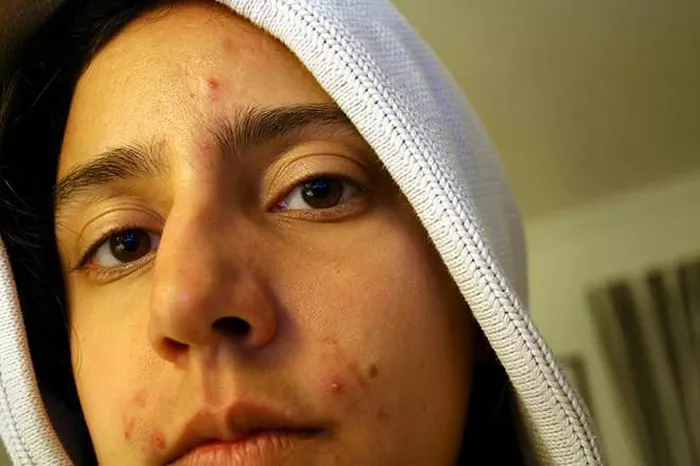Scars from wounds or injuries on the face can be distressing, affecting one’s confidence and self-esteem. While there are various medical treatments available for scar reduction, many individuals prefer to explore natural and home remedies as a first line of defense. In this article, we’ll delve into a comprehensive guide on home remedies for wound scars on the face, offering insights into their effectiveness, safety, and application methods.
Understanding Wound Scars on the Face: An Introduction
Before we delve into the home remedies, it’s essential to understand the nature of wound scars on the face. Facial scars can result from various causes, including cuts, burns, acne, surgical incisions, or injuries. When the skin is injured, the body’s natural healing process begins, resulting in the formation of scar tissue. While scars are a natural part of the healing process, their appearance and texture can vary depending on factors such as the depth and severity of the wound, skin type, and individual healing capacity.
Exploring Home Remedies for Wound Scars on the Face
Now, let’s explore a range of home remedies that are commonly used to reduce the appearance of wound scars on the face. It’s important to note that while these remedies may offer benefits for some individuals, results can vary, and it’s advisable to consult with a healthcare professional before starting any new treatment regimen.
1. Aloe Vera Gel
Aloe vera gel is renowned for its soothing and healing properties, making it a popular choice for treating various skin conditions, including scars. Rich in vitamins, minerals, and antioxidants, aloe vera gel can help promote skin regeneration and reduce inflammation, leading to smoother and healthier-looking skin. To use, simply apply a thin layer of pure aloe vera gel to the affected area twice daily and massage gently until absorbed.
2. Coconut Oil
Coconut oil is another natural remedy that is prized for its moisturizing and healing properties. Rich in fatty acids and antioxidants, coconut oil can help soften and hydrate scar tissue, improving its texture and appearance over time. To use, warm a small amount of coconut oil between your palms and apply it to the scarred area using gentle, circular motions. Repeat this process twice daily for best results.
3. Honey
Honey is renowned for its antibacterial and anti-inflammatory properties, making it an effective remedy for wound healing and scar reduction. Raw honey, in particular, contains enzymes and nutrients that can help promote skin regeneration and repair damaged tissue. To use, apply a thin layer of raw honey to the scarred area and leave it on for 15-20 minutes before rinsing off with warm water. Repeat this process daily for optimal results.
4. Lemon Juice
Lemon juice contains natural alpha hydroxy acids (AHAs) that can help exfoliate the skin and promote cell turnover, leading to the gradual fading of scars over time. However, it’s essential to use lemon juice with caution, as it can cause skin irritation and sensitivity in some individuals. To use, dilute fresh lemon juice with equal parts water and apply it to the scarred area using a cotton ball. Leave it on for 10-15 minutes before rinsing off with lukewarm water. Repeat this process every other day, gradually increasing frequency as tolerated.
5. Apple Cider Vinegar
Apple cider vinegar is known for its acidic properties, which can help exfoliate the skin and improve its texture and tone. When applied topically, apple cider vinegar can help reduce the appearance of scars by promoting cell turnover and collagen production. To use, dilute apple cider vinegar with equal parts water and apply it to the scarred area using a cotton ball. Leave it on for 5-10 minutes before rinsing off with water. Repeat this process once daily, gradually increasing frequency as tolerated.
6. Rosehip Seed Oil
Rosehip seed oil is rich in vitamins, antioxidants, and essential fatty acids, making it an excellent choice for promoting skin regeneration and reducing the appearance of scars. Studies have shown that rosehip seed oil can help improve the texture, color, and overall appearance of scars when applied topically. To use, massage a few drops of rosehip seed oil into the scarred area twice daily, focusing on areas of concern. Allow the oil to absorb fully before applying any other skincare products.
7. Onion Extract
Onion extract is a natural remedy that has been shown to help reduce the appearance of scars by inhibiting collagen production and promoting tissue regeneration. While the smell of onion extract may be off-putting to some, its effectiveness in scar reduction has been supported by scientific research. To use, apply a thin layer of onion extract gel or cream to the scarred area and massage gently until absorbed. Repeat this process twice daily for optimal results.
8. Vitamin E Oil
Vitamin E oil is a popular choice for scar reduction due to its antioxidant properties and ability to promote skin healing and regeneration. When applied topically, vitamin E oil can help soften scar tissue and improve its appearance over time. To use, puncture a vitamin E capsule and apply the oil directly to the scarred area, massaging gently until absorbed. Repeat this process twice daily for best results.
Combining Remedies for Optimal Results
While each of these home remedies can be effective on its own, combining multiple remedies may yield even better results. Experiment with different combinations to find the approach that works best for your skin type and scar type. Additionally, it’s essential to be patient and consistent with your chosen treatment regimen, as scar reduction can take time and results may not be immediate.
Conclusion: Nurturing Skin Healing with Home Remedies
In conclusion, home remedies offer a natural and accessible approach to reducing the appearance of wound scars on the face. From aloe vera gel to coconut oil to lemon juice, there are numerous options available that harness the healing power of nature to promote skin regeneration and repair. By incorporating these remedies into your skincare routine and being patient and consistent in your approach, you can nurture your skin’s healing process and achieve smoother, healthier-looking skin over time. Remember to consult with a healthcare professional if you have any concerns or questions about your scar treatment regimen, and always prioritize safety and skin health above all else.
[inline_related_posts title=”You Might Be Interested In” title_align=”left” style=”list” number=”6″ align=”none” ids=”7217,7214,7075″ by=”categories” orderby=”rand” order=”DESC” hide_thumb=”no” thumb_right=”no” views=”no” date=”yes” grid_columns=”2″ post_type=”” tax=””]

































